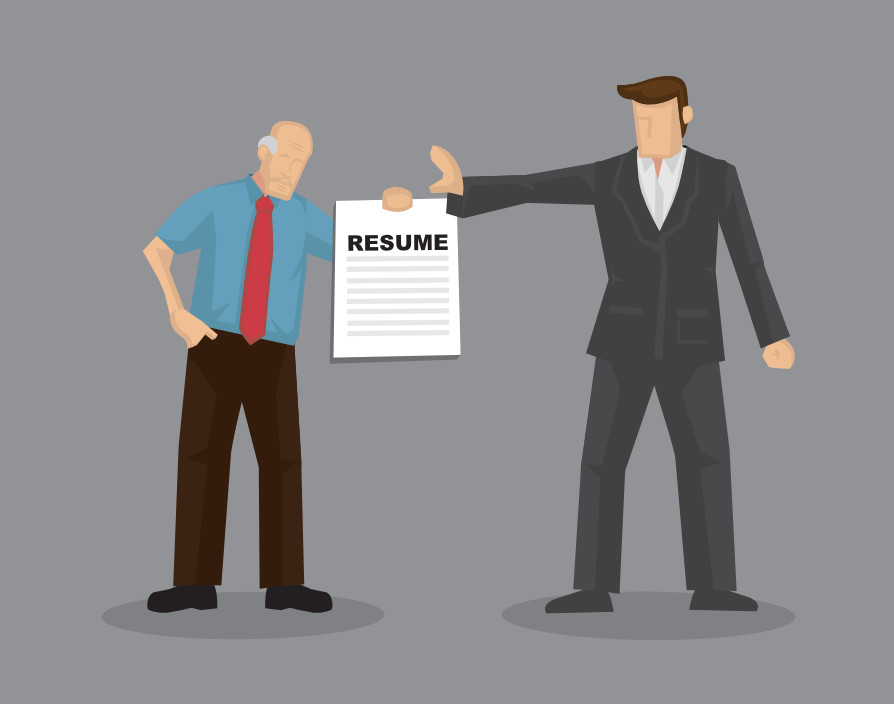Handling older employees can be a bit of a minefield as a recent employment tribunal showed. So what is the correct way to treat older employees when their abilities start to deteriorate?
A recent age discrimination case against supermarket giant Asda brought into sharp focus the dangers of failing to treat older members of staff correctly when they were found to have discriminated against a 73-year-old employee who suffered from dementia. Joan Hutchinson brought the successful employment action after she resigned when her boss repeatedly asked her if she wanted to retire, making her feel like she was being ‘pushed out of the business’, made to feel unwanted and ‘too old to be there’.
The tribunal found that this amounted to age and disability related harassment and direct age discrimination, as well as discrimination arising from disability. The claimant’s resignation also amounted to constructive unfair dismissal. While this case was involving a large supermarket, it offers extremely valuable lessons that all SMEs should take note of.
Trying to ‘help’ isn’t a defence
One interesting thing about this case is that on the face of it Ms Huthcinson’s colleagues were trying to help her and not discriminate against her on purpose. They did things like going through her bag to help her find her keys, but the tribunal found that these actions upset her and left her feeling humiliated, therefore amounting to harassment on the basis of disability and age. Trying to help is not a defence and it is fundamental that nothing is done to demean an employee, whether intentional or not. It was found that having asked what help she wanted first, as appose to proceeding without her consent, would have preserved her dignity.
Making assumptions is dangerous
Unfortunately, people tend to have assumptions as to what a person is capable of at certain ages, but this can get you into serious trouble and should be avoided at all costs. While people’s capabilities can diminish as time goes on this will be different for each person, with many remaining as sharp as a younger person into their later years. As a result, it is extremely important to treat each employee on a case-by-case basis especially with more and more people working into their seventies.
In Ms Hutchinson’s case she was exhibiting some symptoms of dementia and so when she returned from self-isolation ‘ she was shielding as a clinically vulnerable person – she should have been referred to occupational health to investigate her condition and allow the employer to inform itself of her needs. By not doing this, the employer was guilty of making assumptions based on her age rather than a medical opinion, and as such, was open to claims of discrimination.
While it was ultimately found that Ms Hutchinson would likely have been fairly dismissed on the basis of capability in due course, the employer’s treatment of her was not informed by medical evidence and was therefore discrimination on the basis of age and disability at that time.
Getting up to date medical information about your employee is key in these situations as it will allow you to make an informed decision. If your business doesn’t have an occupational health department then you can outsource and get external advice. If this is too expensive, then I would advise getting your employee to provide up to date medical information from their GP.
Working with dignity
With individuals working longer and into older age, it is possible that more employees will start to exhibit signs of dementia in the workplace. It is therefore more important than ever to be aware of the law around age and disability discrimination and know how you can help staff members if they are showing signs of mental or physical deterioration.
The primary lesson to take from Ms Hutchinson’s case is to always get up to date medical information about your employees ‘ preferably from occupational health ‘ when they are exhibiting any type of impairment, whether this be mental or physical, and not make assumptions. You can then make reasonable adjustments to allow them to work with dignity. Where this isn’t possible you will be able to show that you have based any decision on medical evidence, saving you from a potentially expensive discrimination claim.
“
Share via:








































